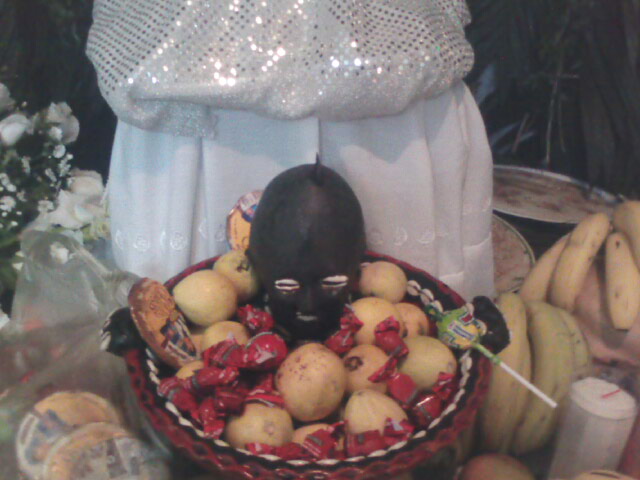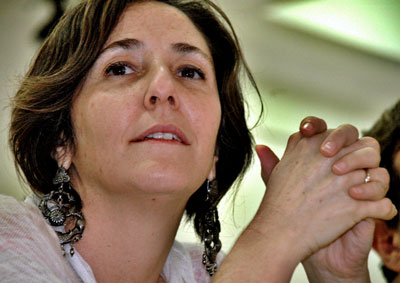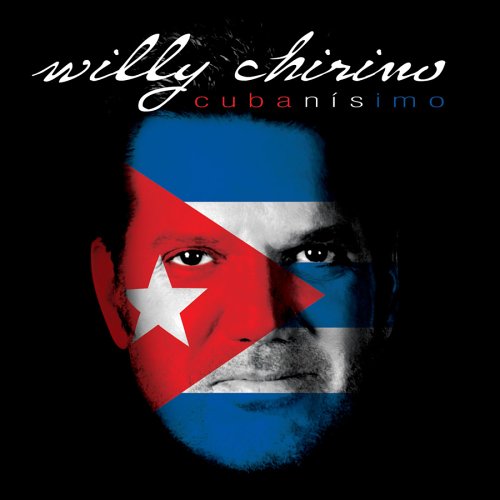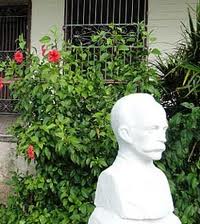
On the occasion of the conference “Cuba: Changes in the Cuban process?” sponsored by the Konrad Adenauer Foundation and CADAL (Center for the Opening and Development of Latin America), held last December 4th through the 6th, I was invited to participate, along with other Cubans on the island, on Panel 5, about human rights, and I sent them the letter I publish here.
In Cuba, the topic of fundamental rights and freedoms has been the subject of constant debate and controversy, not only because our country is a signatory to the Universal Declaration of Human Rights of the United Nations, but also because it was a sponsor of some of its provisions, which were extracted from the Cuban Constitution of 1940. But during the last five decades, our society has been subjected to repeated and systematic, indeed systemic, violations of its human rights. The transgression most obvious to any observer: no political system is democratic with a single party. A single-party system, which undermines plurality, the fundamental bulwark and pillar of democracy, triggers other offenses.
It is true that acts violating societal rights also occur in democratic countries, but the majority of these stem from the nature of the repressive bodies themselves, not state policy, as is usually the case with totalitarian regimes. In our country the evil practice of violating the rights of people is ongoing because there is no legal body established by legislation charged with preserving these rights, to insure they are respected and to fight for them.
Down the years, we have borne witness to how human rights have been violated for those who have denounced the offenses of the authorities in this aspect, and how excessive prison sentences were handed down to them, up to and including the death penalty. Today’s government, due to international pressure, has found itself obliged to stop applying it, although it hasn’t been repealed. Also with globalization, the world in general acts with greater interdependence and swiftness.
With the development of computers, the people seek access to information, and by alternative means society knows what happens on the globe and now cannot maintain itself isolated as it has until just a short while ago. The sultanistic Cuban model doesn’t want to accept the values and principles which govern today and even holds itself to totalitarian practices which have fallen into disuse in the modern era.
The world has changed, nonetheless Cuba declines to change and respect human rights because it doesn’t accept the will of the majority. And this is the essence and origin of her violation of human rights, for if respect for political diversity doesn’t exist across the spectrum of national life, there is no chance of participation of minorities in the debate that must arise about this matter at the center of peoples’ lives. Cuba sustains the propaganda of its successes in rights to life, health, and education, these being the weak footing on which it erects its body of rights to maintain immobilization in this sense.
The appearance on the public scene of the Ladies in White and their courage in taking the streets was something unexpected that the repressive bodies and the authorities in general saw themselves obliged to accept. For them, they succeeded in the release of their relatives from prison and a significant number of political prisoners. But more important than the result was the fact that for the first time the streets were taken by a group of citizens who weren’t aligned with the government and to its habitual campaign of propaganda and immobilization. In that case, they were simple citizens who demanded the liberation of their relatives, but the spark couldn’t veer off its course into a claim of civil and political rights through this same form of non-violent struggle.
As well, the strike in Santa Clara of the independent journalist Guillermo Fariñas, for the death of Orlando Zapata Tamayo, and the demand for the liberation of twenty-six Cuban political prisoners had an unprecedented result: creating interest in the international community for his health and to demand with him the release of the prisoners. This made it attractive that the authorities should liberate the prisoners in an interplay with the Spanish government and the Catholic Church to prevent the death of the striker.
The negative of the Cuban authority’s permission at whatever cost that individuals from the independent civil society should “take the streets” actually creates environments of hostility and social tension in certain sectors of the Cuban archipelago, although this independent civil society hasn’t yet managed to impose its presence nor has it massively mobilized the population.
The changes that until now the Cuban government has been making since the last Party congress by means of the approval of the Guidelines of Economic and Social Policy of the Party and the Revolution only refer to the economic spheres, not to the political ones. The authorities continue privileging societal control at whatever price to maintain power and transfer it to its successors designated by themselves.
In the Cuban present, the alternative civil society finds itself engrossed in this dilemma: shall it maintain itself in the scope of protest, denouncement, and analysis as much in the spheres of intellectualism, art, alternative or independent movements, etc; or shall it take the citizen’s initiative in the environment of proposing to the authorities from their own mobilized capabilities? The decision for the power of a better outcome for all would be the implementation from the law of the political plurality. From that statute forward, a process of indispensable rebirth of the full dignity of the human person, who surely will put us on course toward a National Democratic State of Rights, of justice and peace.
December 13 2011










